The Great British Pub: A Cultural Cornerstone
Social institutions
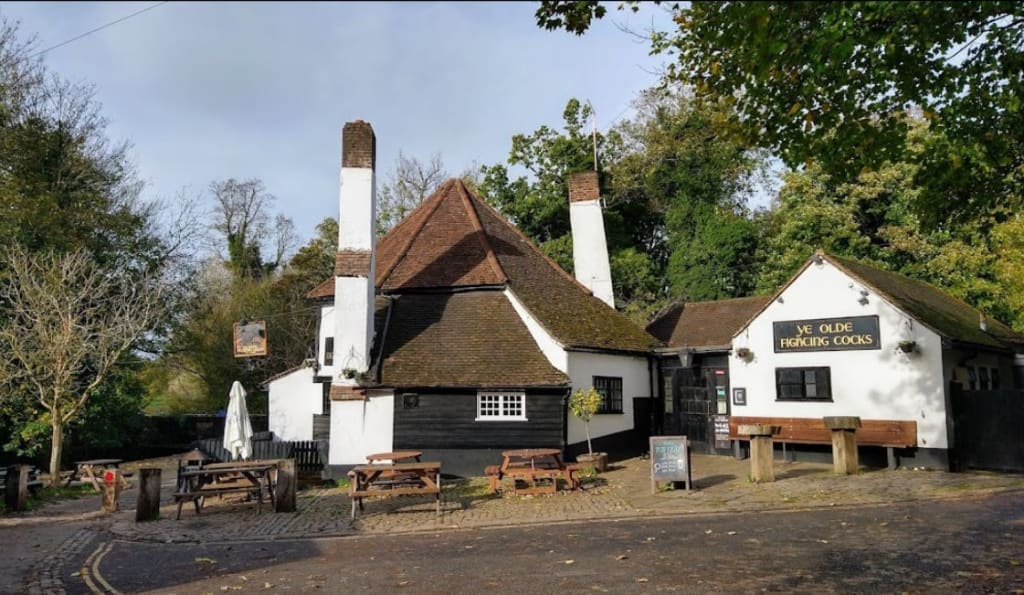
There are over 50,000 pubs in the United Kingdom, the oldest being Ye Olde Fighting Cocks in St. Albans, Hertfordshire, which was founded in 793 AD. British pubs are integral to UK life, having been a part of UK culture for centuries. They have been featured in literature, music, and film: a constant reminder of British history and heritage. Regarded as great British 'institutions', they are popular destinations for people of all ages and backgrounds. Being more than just places to drink alcohol, they are also social hubs where people come together to relax, chat, eat and have fun. The most famous pub in the UK is The Sherlock Holmes Pub in London, which is said to be the inspiration for the fictional detective's favourite haunt.
Pubs are so prolific in the country that there is one on almost every street corner in Britain. In my local town, for example, there are 24 pubs and bars, each catering for a different clientele, governed partly by age and area. Pubs that cater for younger people tend to be more musically noisy, with a transient upbeat feel than those aimed at a more mature user. These tend to be quieter and more sedate. Being a most congenial place for people to meet for refreshments and share each other's company, the pub is a significant force in the social fabric of British life, offering a warm welcome to locals and strangers alike; a central place where city dwellers can have their lunch/dinner, friends and family can gather to gossip and make plans, while remote villagers can reminisce and put the world to rights over a pint of their favourite brew, while bemoaning the passing of best loved traditions. But it wasn't always that way, as the history of pubs reveal later on.
The key reasons why British pubs are so significant to British lifestyle include the following:
A place for the local community. Pubs have been the hub of social interaction for hundreds of years and have helped to define local identities and culture. To many users, pubs are as important as the local supermarket or place of worship in serving their needs, mainly because they have been a focal meeting point, playing a vital social role, particularly in rural areas, in reducing the sense of isolation people might feel.
A place for relaxation and entertainment. Pubs are great places to unwind after a long day. You can enjoy a drink with friends, read a book, play a game or have a meal. They often host live music, comedy nights, quizzes and other events, too, and favourites for being great places to watch sports. Pubs are also repositories of local history and culture as they often feature traditional décor, such as wooden beams, open fireplaces, and brass fittings, which evoke a sense of nostalgia and connection to the past. Additionally, pubs often display memorabilia and artwork that reflect the unique character of the local area.
Part of British culture: The pub is also a place where traditions are born and many significant events take place, mainly because it is the only public space where political ideas and community action have been nurtured freely without too much censorship or fear. Notable examples include "the Eagle pub in Cambridge, where Francis Crick and James D Watson first publicly announced their discovery of the structure of DNA, the Eagle and Child in Oxford, where JRR Tolkien, CS Lewis and others met each Tuesday to discuss their literary work, and the Angel & Royal in Grantham, Lincolnshire, where Richard III signed the death warrant for the Duke of Buckingham".
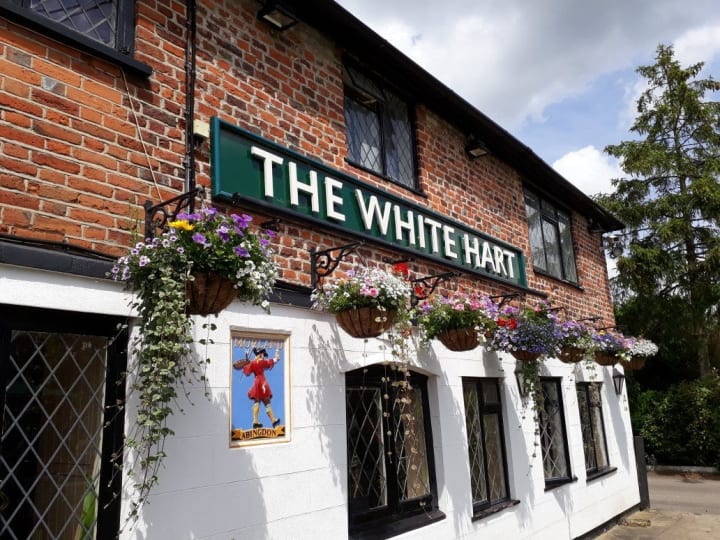
A Brief History of British Pubs
Surprisingly, the uniquely British pub wasn't British at all when it first came into being. It was actually a Roman creation during the Roman occupation of Britain, represented by two vine leaves to depict its existence to travellers. Named 'tabernae', or taverns, over two thousand years ago, pubs were simple roadside inns that catered for travellers' needs, especially through the provision of accommodation, food and drink and warm hospitality. People were always travelling around, especially on religious pilgrimages, like the ones describe in Chaucer's Canterbury Tales, and they required available and convenient hospitality.
Even the names and signs of pubs are not accidental. From the Roman vine leaves, small evergreen bushes were substituted as the sign of a pub. Gradually individual emblems came to represent specific pubs, especially when their owners couldn't read or write! That is why so many pubs share the same emblems (like the 'King's Head' or 'Red Lion').
From the 9th century, pubs became known as ‘alehouses’, where people could go to drink ale, which was a fermented beverage made from barley. Alehouses were often located near monasteries, where monks brewed the ale. At this time, water pollution was a very big problem, so many people preferred to drink ale than water. Brewers even sold beers from their homes, which meant, despite the legal regulations in force, drunkenness was rife.
Moving on to the 12th century, alehouses began to be licensed by the government. This was done to ensure that the ale being served was safe to drink. However, the change meant pubs were required to have specific individual names to avoid confusion, in order for the official Ale Taster to identify them. Before King Henry VIII - in the 15th century when the country was largely Catholic in faith - pubs tended to have names with religious themes. But after the split with Rome, the names then related to the King, to famous people (like the Shakespeare Arms or the Duke of Wellington), aspects of British culture like heraldry (Black, White and Red Lions and the Red Dragon), sport (the Cock Inn, Coach and Horses and Cricketers' Arms) or depicting a trade (Bricklayers Arms and the Horse and Groom). Alehouses also began to offer food and other amenities, such as gambling and entertainment.
By the 16th century, pubs became even more popular as a result of the introduction of beer which was a stronger alcoholic beverage than ale, and was also cheaper to produce. Pubs began to offer a wider variety of beers, becoming a popular destination for people of all social classes. They gradually became even more important as a social hub during the 18th century, due in part to the Industrial Revolution, which led to an increase in urbanisation. Pubs then became a place where people could go to relax and socialise after a long day’s work.
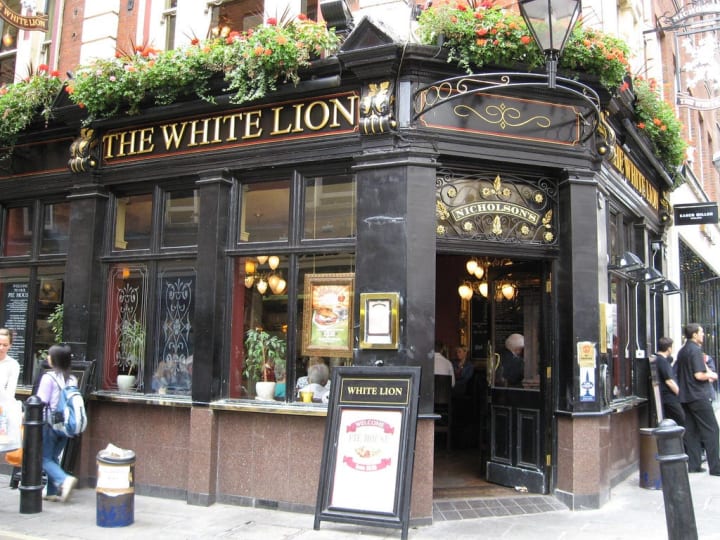
By Queen Victoria’s time, the term 'pub' had also emerged as a shortened form of 'public house' to describe these traditional ale houses. However, pubs also began to face some challenges, in order to conform with the rigid protocol of Victorian life. One major challenge was the rise of temperance movements, which advocated for the prohibition of alcohol. Another challenge was the growth of supermarkets and restaurants which offered cheaper and more convenient alternatives to pubs.
However, by the early 20th century, with the abolition of the beer tax in 1930, which left ratepayers free to sell beer without a license, beer houses and bars flourished even more across Britain and pubs began to assume the social characteristics they have today, though the First and Second World Wars led to a decline in the actual number of pubs. After World War II pubs also faced competition from television and other forms of entertainment as people stayed at home more.
Despite the challenges over the centuries, the pub has remained an important part of British lifestyle, being an enduring institution and vital link between several generations of local families through the activities and enjoyment shared within it. It is also rich in British history and social mores, occupying a central place not only in the life of the community but in the hearts of its users. For that reason, "Popping down to the pub for a pint and a chat", means far more to the people who understand its history, emotion and nuance, than can ever be expressed in mere words to an outsider.
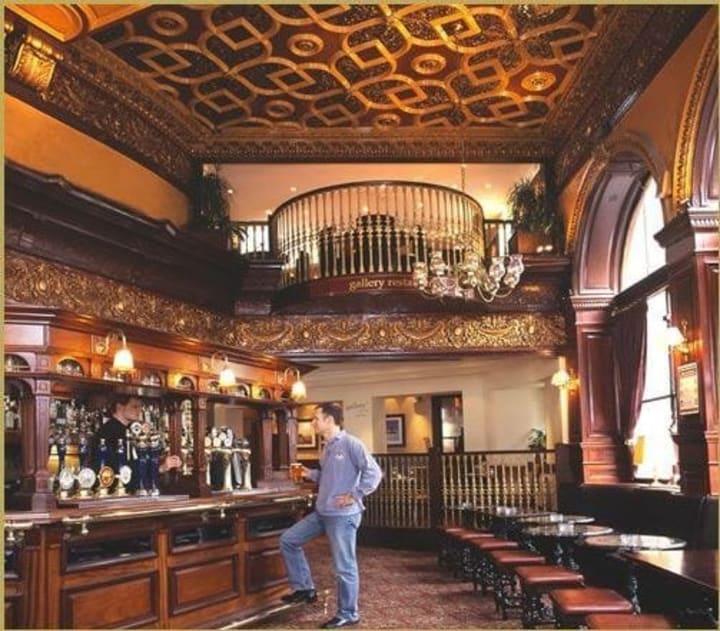
In essence, the British pub is more than just a place to drink and socialise; is an institution that has stood the test of time - a symbol of British identity. Its enduring popularity reflects the deep-rooted values of community, camaraderie, and hospitality that are central to British culture. The pub's enduring charm lies in its ability to provide a warm and welcoming atmosphere where people from all walks of life can connect and feel a sense of belonging.
British pubs are very popular with tourists, too. If you’re ever in the UK, be sure to visit a pub. It is a great way to experience British culture, learn about the locality and even make some new friends!
Sources: Great British Pubs/Wikipedia/ English Pubs - a lasting tradition
RELATED POST
About the Creator
Elaine Sihera
British Empowerment Coach/Public speaker/DEI Consultant. Author: The New Theory of Confidence and 7 Steps To Finding And Keeping 'The One'!. Graduate/Doctor of Open Univ; Postgrad Cambridge Univ. Keen on motivation, relationships and books.


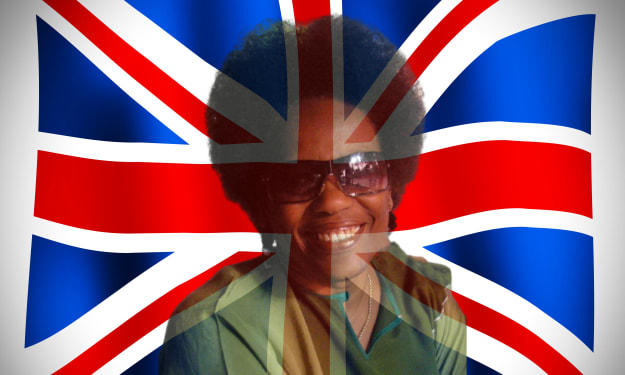



Comments (3)
I cannot believe I have not been in a pub since being here. I walked by a few, but mostly I see them in movies. I got fish and chips, but no pub. This now encourages me to visit a pub. What a great history of pubs. Who knew Romans started this tradition.
Dear Elaine - Such a wonderful glimpse into your so 'Drinkable' history - You are a marvelous story teller; not a hiccup of redundancy. Ok, I'm stalling...yes, Elaine I have another back story. I'll - DELETE - this in a while so not to take away from your story. In Brief: Wife's family came here (California) on holiday. They once went to other countries such as Spain...but liked it here - free lodging-food-cars you know where I'm going with this. They would smoke-drink Guinness, etcetera (which I don't do at all). But, never in my home...only on my balconies (certainly never waifed back into the house...Hmm). Sadly, I would take my Corgis and go into our bedroom - never really feeling a part of their hometown stories - felt left out. Rita Louise knew this but, it was what it was, sorry to 'Kvetch' about this, Elaine. Dad had a photo of himself taken with sunglasses on sitting back in our Jacuzzi with a Toddy in his hand that now hangs over the counter in 'Sullivan's Pub in Cork County, Ireland. Pub bragging rights I reckon? I'm reading this over again. Thank you for saying you "Love" my writing 'Schtick'...Backatcha! 'j'
I like this article. It is well written and informative.